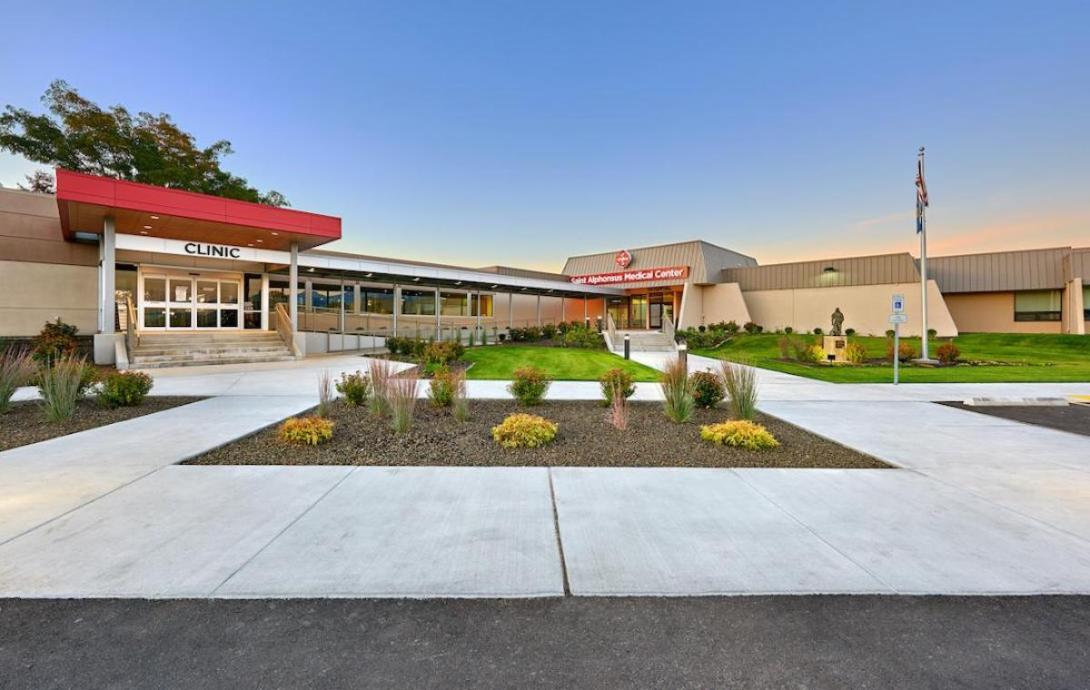
Nearly a year after Baker City saw its only birth center close, U.S. Sen. Ron Wyden has unveiled a plan to prevent more rural and underserved communities from becoming “maternity deserts.”
On Monday Oregon’s senior senator in Washington D.C. outlined draft legislation designed to increase the flow of federal funding to hospitals that otherwise might close their maternity units because of reduced demand. Wyden’s legislation follows other efforts to address the trend of hospitals increasingly closing costly maternity units.
“We can’t just sit by and turn these communities into sacrifice zones,” he said. “That’s what’s happening if you don’t have rural healthcare and you can’t deliver babies.”
Nearly a quarter of rural hospitals, or 267, stopped providing obstetric services between 2011 and 2021, according to research from health care consulting firm Chartis. Meanwhile, the U.S. has seen notable increases in maternal mortality, with some states seeing their rates double.
Wyden said Oregon saw a “textbook” case of what can happen after the closure of a birth center in Baker City last year. Saint Alphonsus Health System closed its birth center for the small eastern Oregon town, despite opposition from community members as well as Wyden and other elected leaders.
Wyden noted that since the closure, expectant mothers in Baker City now have to drive at least 45 minutes to the nearest hospital in La Grande on a road that is sometimes impassable because of winter weather or wildfires.
“Closures like these are driven by stark economic realities facing the hospitals, as well as efforts by large hospital chains ‘streamline’ their business at the expense of young families,” he said.
Wyden’s legislation would increase Medicaid payment rates for labor and delivery services at eligible rural and “high-need” urban hospitals. Hospitals that see low volumes of births would receive “standby” payments under the legislation to cover the costs of obstetric staffing and maintenance costs. These hospitals could also receive payment adjustments for labor and delivery services with the requirement that they stay in the community.
Additionally, the legislation would require states to study and report to federal authorities the costs of providing labor and delivery services in rural and underserved areas. States would also have to provide women with 12 months of postpartum Medicaid coverage.
Saint Alphonsus announced the closure of its Baker City maternity unit with only four weeks’ notice, which was pushed back by a month with the help of federal funds to help staff it. Wyden’s legislation would require hospitals to give additional notice of maternity unit closures.
Wyden said he did not know if his legislation would help Saint Alphonsus reopen its birth center. Saint Alphonsus did not immediately respond to a request for comment from The Lund Report.
The Hospital Association of Oregon expressed support for the proposal in a statement issued by Wyden’s office, saying rural hospitals deliver one in six babies in Oregon.
Wyden didn’t have details on how much the legislation would increase Medicaid rates. The legislation is cosponsored by 15 other Democrats, and Wyden said he is optimistic that Republicans will sign on.
“The Senate is essentially a very rural institution,” he said.
Legacy Health’s move to close its maternity unit at its Gresham hospital also sparked headlines and community opposition in 2023. The health system reopened the maternity unit, which serves a less affluent and more diverse population in east Multnomah County, after coming under scrutiny by state and federal regulators.
In response to the situation, the Oregon Health Authority finalized rules this year that require hospitals to study how vulnerable communities would be affected by closures of vital services.